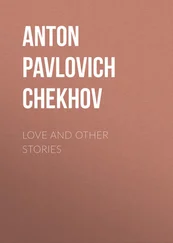I use the Zakharov canvas as my map, holding it to the horizon to match the topographical contours. A few times I think I’m nearly there, but no, not quite. This is a titanic waste of time. I’ll get lost and rebel bandits will chop off my head and donate my vital organs to Saudi charities.
I should probably turn around.
I really should.
But there, up ahead. An apricot tree. A boarded well. A white stone fence. An herb garden. A home. I look back and forth between the real and painted landscapes. The two shouldn’t so perfectly correspond, not after two centuries, but they do.
On the hill an adult and child are shadowed within a dissolving orange sunset. Just like the apricot tree, the stone fence, and the herb garden, the two figures silhouetted on the hill match those of the painting.
I wave to them.
I wave again.
I wave a third time.
They wave back.
KIROVSK, 1999
No one could explain why the wolves returned in the early years of the newly formed Russian Federation. Biologists arrived with honorifics and plastic binders, departed with unpaid hotel bills and findings so disparate it was a wonder they could agree a wolf had four legs, two eyes, and one nose. Some blamed an irregular cycle of population growth and decline. Some blamed global warming and intense logging of woodlands to the distant southwest. Most blamed their mothers, for one thing or another. Vera had her own theory, but no one thought to ask her.
The wolves howled in White Forest just across the colorless meadow from Vera’s house. She stood at the stove boiling water in a saucepan dented sixteen years earlier, when she’d thrown it at a telephone that kept on ringing long after she’d hung up. The kettle had been a gift from her mother-in-law, a direct descendant of Genghis Khan, and Vera had sold it with a set of dull knives and what remained of her daughter’s clothes. But the saucepan boiled water as well as the kettle, the knives weren’t sharp enough to slice a slab of cold butter, and her daughter’s clothes, well, Lydia had moved to the right side of the world and these were difficult times. She strained the Ivan-chai into teacups.
“I didn’t know you drank such a weak brew,” Yelena commented, in the living room, with a thin smile of insincerity stitched between her plump cheeks. Her eyebrows were plucked brown sickles. Every two months she flew business class to Moscow — always bringing a stack of airline napkins as “souvenirs” for Vera — to have her hair recolored, her skin reapplied, and the toxins leached from her body by a Tibetan healer. Not a very good Tibetan healer, Vera would think to herself. If he properly leached all the toxicity from Yelena, there would be no Yelena left.
“I prefer a subtle brew in the evenings,” Vera said. It was two in the afternoon. Any more subtle and they’d be drinking straight water. “Otherwise I’d be up all night.”
Yelena slinked her arms into her coat sleeves with a slight shiver, which she realized wasn’t even theatrical. But there was nowhere she’d rather be. How many times, as a young woman, had she come to Vera cold, hungry, impoverished? How many times had Vera subjected her to audiences no less humiliating than this? Grand Inquisitors had treated heretics with more clemency than Vera had treated her closest friend. So yes, Yelena had every right to enjoy this. She would’ve conjured more empathy for Vera’s present difficulties had they not been her own so often in the past.
The furnace glowered at Vera from her late husband’s favorite corner of the living room. Even broken it wasn’t quite as useless as he had been — if nothing else, she could hang wet stockings over it — but for two weeks now, it had produced no more than a stray cat’s body heat.
“You know it’s been hard recently,” Vera began. She steepled her fingers to catch and shelter some vestige of fleeing dignity. “If prices keep going up at this rate they’ll look like postal codes soon. What once bought bread for a month, now buys half a loaf. My pension stays the same and even that they don’t bother paying half the time.”
“The economic shock treatment has hurt the weakest members of society,” Yelena pointed out. “Not just you. Also the enfeebled and alcoholic.”
The shadow of her collected Gorky was dust-etched into the empty bookshelf. The leather-bound set had gone for less than the kettle. “Please, Yelena. Can your son help me?”
“Pavel?” She only had one son. “I wouldn’t want to bother him with something like this. You know how busy he gets.”
They both knew that in the end she would help Vera. In the end, they always helped each other. Yelena relented. “I’m going to Pavel’s for dinner this Sunday. If the subject comes up, I’ll ask if he has work.”
“Thank you.” Vera said it as nicely as she could, but the cold condensed her gratitude into a curse. After Yelena left, she washed up. She’d been born in this house sixty-three years earlier and intended to die here: It was one of her few life goals that she still had time to achieve. There was coherence in exiting by the same door through which you entered, bookending with order this senselessly churning existence.
In bed, she prayed for that mercy. One night as a girl, huddled in that same bed with her parents for warmth, she’d seen them bow their heads and speak a formal language whose wide vowels yawned with wanting. They had thought she was asleep. A half-century had passed — and with it the Soviet Union, Marxism-Leninism, the infallible tenets of communism that had undergirded her faith — and now she found herself the citizen of a nation politically enfeebled and spiritually desolated enough to permit prayer to an authority more omnipotent than its government. But how do you trade your gods so late in life? Six decades of Soviet-speak had left her vocabulary crowded with slogans. She had little practice articulating the complexities of individual desire.
Now Vera closed her eyes and imagined the sound of wolves carrying her to sleep. Before there had been a gulag, a mine, a city, there had been wolves. An early scientific expedition had reported multiple encounters with a roving pack that had never before encountered prey as portly and pusillanimous as academics. Ten of the thirty-two geologists who had discovered the first nickel vein had been killed by wolves in 1928. In the late 1930s, when engineers had hastily assembled a gulag around the nickel mine, the Red Army had hunted the wolves nearly to extinction. It became well established in university biology departments that wolves were the capitalist imperialists of the animal kingdom, and so the army went to great lengths to be rid of them. But the wolves had returned during the Great Patriotic War, when all Red Army units had been sent southwest to face encroaching panzer divisions. Wages had been paid in hunks of bread measured to the grain and gram. Vera had watched her parents and neighbors scavenge to survive. After the war, people had resumed killing wolves and Kirovsk had returned to silence.
Now, curled beneath heavy blankets, Vera remembered when the howling of wolves had signaled a coming hunger.
THE year of the German invasion had been the high point of Vera’s life. That year she was extolled in schools, newspapers, and radio broadcasts from Minsk to Vladivostok. In the official version, Vera had witnessed her mother break into the commissariat canteen, pledge loyalty to Trotsky, and abscond with a hundred kilos of flour and a dozen live chickens stuffed in a sack. Pravda praised Vera for immediately reporting her mother’s treason to a commissar. “My mother is an enemy of the state and an enemy of the people,” she said, to which the commissar replied, “Though the state and the people are one and the same, you are the hero of both.”
Читать дальше












